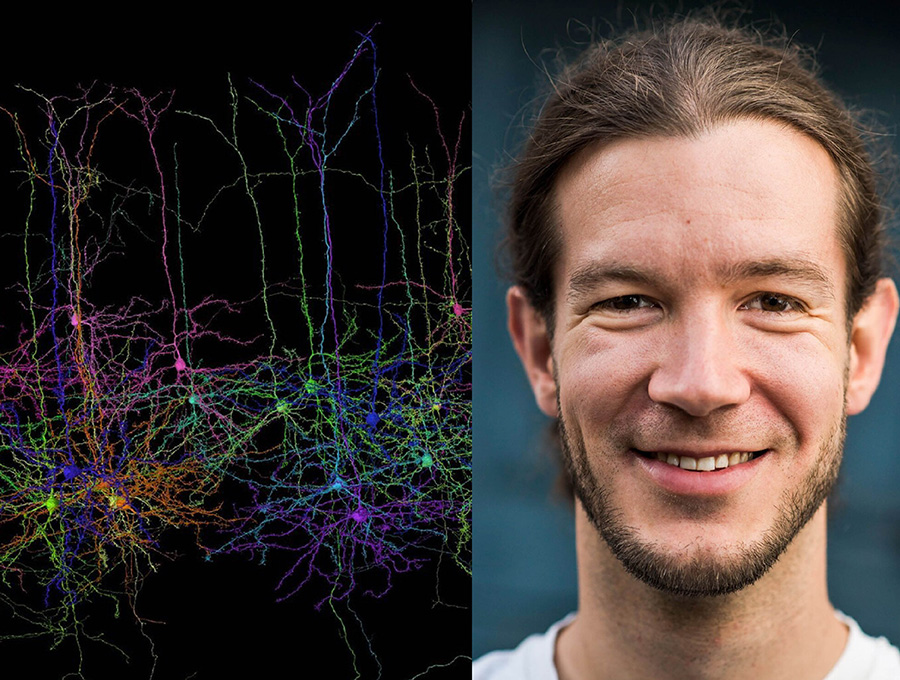Göttingen computational neuroscientist receives ERC Starting Grant of 1.5 million euros
The computational neuroscientists Professor Alexander Ecker from the University of Göttingen and the Max Planck Institute for Dynamics and Self-Organization (MPIDS) has received a Starting Grant from the European Research Council (ERC). The ERC will fund his project "Deep Neuron Embeddings: Data-driven multi-modal discovery of cell types in the neocortex" for five years with a total of 1.5 million euros. Ecker and his team want to find out how the shape of a neuron in the cerebral cortex relates to its function.

With the funding, Ecker and his team want to find out how the form and function of neurons in the cerebral cortex are related. MICrONS Consortium
/pug, BN/ “Form follows function” – this principle, which later formed the basis of the Bauhaus style, was proclaimed by the early 20th century architect Louis Sullivan to be a universal law of nature. “Whether this also applies to the brain, however, is currently unknown,” says Ecker, describing the background to his work. “For example, it is not yet clear how the shape and function of the neurons in the cerebral cortex are related.” Building on recent scientific advances, Ecker and his team can now address this question. For a long time, it was only possible to measure either the morphology (shape) of a neuron or its functional activity but not both at the same time.
Corticla neurons exhibit a wide diversity of shapes with complex branching patterns and other morphological features. Similarly they exhibit a lot of diversity in how they process and interconnect stimuli during visua perception. TO find out how features of a neuron’s shape relate to its role in sensory information, complex mathematical descriptions are necessary. The team draws upon a large data set from an earlier collaboration funded by the US Brain Initiative, which investigated the anatomy and activity of about 100,000 neurons in the visual cortex of a mouse. With the help of the ERC grant, the scientists plan to develop machine learning techniques to mathematically describe these neurons, recognize patterns in thedata, and correlate their form and function.
This enormous challenge is also made possible by the interaction of the various research institutions at the Göttingen Campus. Ecker has been Professor of Data Science at Göttingen University since 2019 and is also a Max Planck Fellow at MPIDS. At the university, he holds hisprofessorship at the Institute of Computer Science and also serves as a board member of the Campus Institute Data Science (CIDAS), the interface for collaboration in the field of Data Science at the Göttingen Campus. Ecker completed his computer science studies at the University of Tübingen, followed by a PhD in the context of a collaboration with Baylor College of Medicine in Houston (USA) and subsequent work as a group leader, also in Tübingen.
With the ERC Starting Grants, the European Union supports outstanding young researchers in building their further scientific careers. The funding is intended to enable them to develop an independent scientific profile and pursue innovative ideas.




